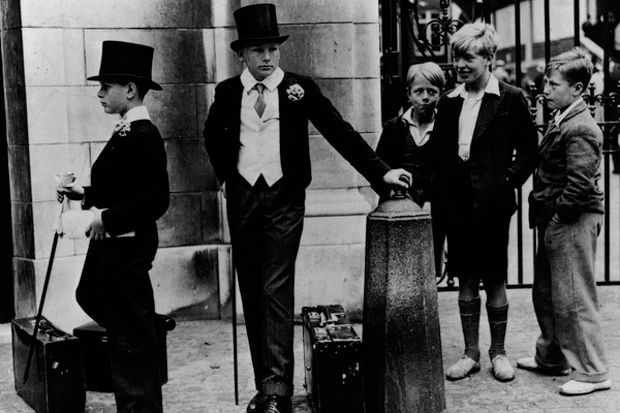There’s a warning buried in the detail of the new report by the Social Mobility and Child Poverty Commission on why top companies employ so few applicants from comprehensive schools: ‘Though this study provides valuable insights into barriers to the elite professions, there are nevertheless some limitations associated with the chosen research methodology. As a small-scale qualitative study, the aim is to explore issues and generalisability is limited.’
But most pundits who’ve commented so far missed this caveat. ‘New research… reveals the privileged choose and look after their own,’ wrote Owen Jones in the Guardian. ‘They don’t like accents that sound a bit, well, “common”.’ Grace Dent made the same point in the Independent: ‘Elite financial services and legal firms are reportedly operating a “poshness test” that systematically locks out talented working-class people.’
I’ve read the report and it contains little hard evidence that high-paying professions are discriminating against applicants from disadvantaged backgrounds. The researchers interviewed people involved in recruitment at 14 top law, accountancy and financial services firms and found what, at best, could be called anecdotal evidence that they apply an informal ‘poshness test’ — favouring those who’ve travelled widely, say. True, the report also contains some hard data — such as the fact that over half of recruits at these firms were educated at independent schools or grammar schools — but by itself that’s not evidence of discrimination. On the contrary, all 14 companies use a variety of methods, including psychometric testing, to ensure they recruit the most talented graduates, regardless of social origins.
The problem isn’t that these HR departments are staffed by snobs, but that insufficient numbers of bright working-class people fill in application forms. For the most part, that’s because these companies concentrate their marketing efforts on Britain’s 24 Russell Group universities and ten in particular — Oxford, Cambridge, Bristol, Durham, Imperial, Warwick, UCL, Nottingham, Leeds and Manchester. Given how good these institutions have become at cream-skimming the most gifted 18-year-olds, it’s sensible to focus on them, but one of the unintended consequences is that they end up recruiting a disproportionately high number of middle-class applicants. Why? Because the middle classes are over-represented at these universities.
At Oxford, 43 per cent of the current population of UK undergraduates came from independent schools. Cambridge fares a little better — around 37 per cent — but even at Manchester it’s still around 23 per cent. The Social Mobility and Child Poverty Commission repeats the slightly dubious statistic that only 7 per cent of UK schoolchildren attend independent schools — when it’s 14 per cent if you look at those studying A-levels. Nevertheless, the independent sector is over-represented at Britain’s best universities and even the places taken by state school pupils are monopolised by the better off. Last year, fewer than 1,000 children on free school meals who went to a state school were admitted to a Russell Group university.
[datawrapper chart=”http://static.spectator.co.uk/mMPei/index.html”]
Which isn’t to say that elite universities are discriminating against children from disadvantaged backgrounds, any more than elite companies are. Again, the problem is too few applicants. Not nearly enough children from underprivileged backgrounds do the A-levels that will let them gain admission to Russell Group universities — maths, further maths, physics, biology, chemistry, history, geography, modern and classical languages and English literature. That’s partly because they’re not steered towards them by their teachers — or, at least, not in large enough numbers — and partly because they don’t do well enough in their GCSEs to take them.
The Sutton Trust published some research this month that identified a group of clever children from underprivileged backgrounds on the basis of their Key Stage 2 Sats and looked at how they fared in their GCSEs. They found that 36 per cent of the boys and 24 per cent of the girls were under-achieving. This is where these children are effectively being discriminated against, between the ages of 11 and 16.
The answer is not to browbeat good universities and top firms, but to make sure that bright children are pushed harder in comprehensives. Insisting that all children do the EBacc, as Nicky Morgan is doing, is a good start. If Owen Jones and Grace Dent want to do something about flatlining social mobility, this is where they should concentrate their energies.







Comments